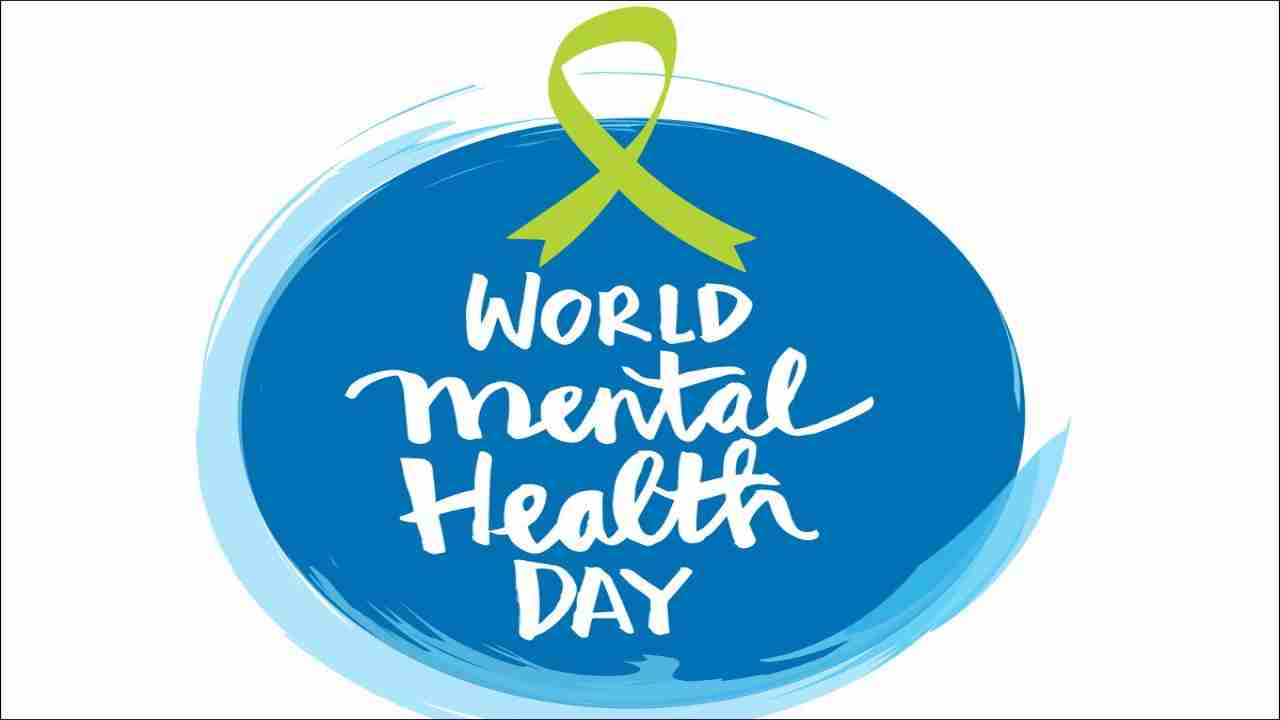World Mental Health Day 2021: On account of world mental health day, let’s talk about mental health of children and adolescents amidst COVID-19. Few of the important concerns in this age group are stress, worry, helplessness, inattention, anxiety, depression, loneliness, sleep disturbances, changes in weight/ appetite, impulsivity , defiance, irritability, screen addiction, cyber bullying, social and risky behavioural problems e.g., substance abuse, suicide, relationship problems, academic issues, and absenteeism. Although the number of children and adolescents affected by the disease is small, the disease and the containment measures such as social distancing, school closure, and isolation have negatively impacted the mental health and well-being of children and adolescents.
The home confinement of children and adolescents is associated with uncertainty and anxiety which is attributable to disruption in their education, physical activities and opportunities for socialization. Before the pandemic learning predominantly involved one-to-one interaction with their mentors and peer groups. Absence of structured setting of the school for a long duration result in disruption in routine, boredom and lack of innovative ideas for engaging in various academic and extracurricular activities. Not being able to play outdoors, not meeting friends and not engaging in the in-person school activities are an added disadvantage.
50% don’t seek mental health help despite needing it: Survey
These children are becoming more clingy, attention seeking, throws lots of temper tantrums and more dependent on their parents. It is presumed that these children might resist going to school after the lockdown gets over and may face difficulty in establishing rapport with their mentors and friends after the schools reopen.
Overall this can have a long term negative effect on their overall psychological wellbeing. Whereas older adolescents are anxious regarding cancellation of examinations, exchange programs and academic events. After the second wave a lot of lives were lost which orphaned many children causing complicated grief, bereavement & depression. Underprivileged children that are studying in rural areas, working on farms, children of migrants and street children are at a high risk to face abuse and mental health issues with greater vulnerability and exposure to unfavourable economic, social and environmental circumstances. Online education is not available to underprivileged children as a result of which they face a lack of stimulation and have no access to Internet / online resource material to study.
Need to focus on mental health amid pandemic: NIMHANS Director
School closure along with financial strain may force children and adolescents into school dropouts and child labour by their helpless parents.
Here are 20 best ways to protect mental well-being of your children and adolescents:
- Firstly to reduce the fear of pandemic parents should interact constructively with the children by communicating with them about the current pandemic, according to their maturity level and their ability to comprehend the crisis with the help of presentations and video material provided by authorized international organizations like WHO and UNICEF or government resources which have been tailor made especially for children.
- Parents should plan their children’s tasks one at a time, involve them in various home activities, educate them about following hygiene habits and social distancing, and engage in indoor play and creative activities.
- Adolescents are advised to be involved in household chores and understand their social responsibilities.
- Parents should create more structure in home schooling activities.
- Encourage children to socialize with their friends and classmates through digital forums under your supervision.
- Parents should devote time to provide the child with undivided, positive attention and reassurance.
- Child’s exposure to news should be limited and be through fact based neutral news channels only. The tabloid news should be avoided by all means. This reduces anxiety among them especially with speculations of a possible third wave affecting their age group.
- Family must play board games and engage in indoor sports activities with the child to avoid longer durations of video games.
- Focus should be on the ‘good behaviour’ more than ‘bad behaviour’ of a child. Parents must tell more about options regarding what to do rather than what not to do.
- Use praise and social reinforcements to children compared to material reinforcements.
- Parents are the best ‘role model’ for children as they learn life skills at home observing you. Hence, this is the best time for parents to model the most important life skills i.e. coping with stress, coping with emotions, decision making and problem-solving with their children.
- Encourage them to handle disappointments and uncertainties more positively in view of cancellation of exams & uncertainties of educational opportunities.
- Teach some of the age appropriate skills including cooking, managing money matters, learning first aid, organizing their room, contributing to managing chores like laundry, cleaning and cooking.
- Excessive and irresponsible use of social media or internet gaming should be cautioned against, Negotiate to limit their time spent on screen. Encourage more non-screen related in door activities and games.
- Encourage them to take up a creative hobby like art, craft, music, dance and others which helps in mental well-being and better cognitive development.
- Schools can conduct creative online academic and non-academic sessions by making their classes more interactive, engaging students in the form of quizzes, puzzles, small competitions, and giving more creative home assignments to break the monotony of the online classes.
- Teach them simple exercises, including deep breathing, muscle relaxation, distraction, and positive self -talk.
- Starting school or starting a new school year can be stressful especially during a pandemic. Children may feel nervous or reluctant to return to school. Reassure children about safety measures in place to help keep students and teachers healthy and remind children that they can also help prevent germs spreading by washing their hands with soap and coughing or sneezing into their elbow. Remind them about the positives that they will be able to see their friends and teachers and continue learning new things.
- it’s important to be calm and proactive in your conversations with children. Be gentle and welcoming in your conversations. Check in with them to see how they are doing. This will give your insight in to their mental health issues.
- Last but not least please don’t hesitate to see a psychiatrist when in need.


















